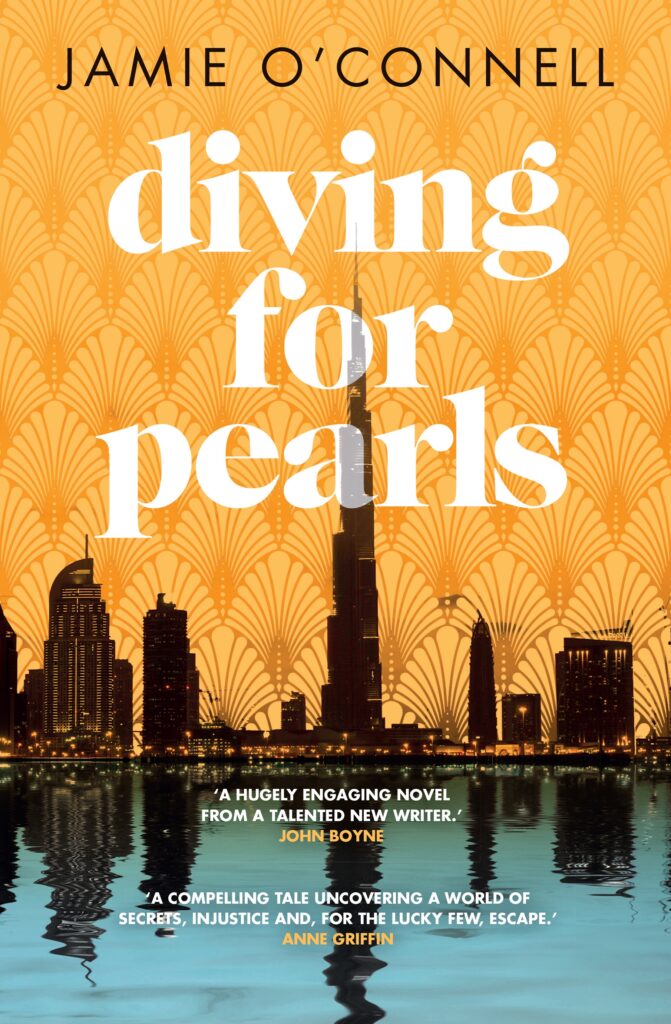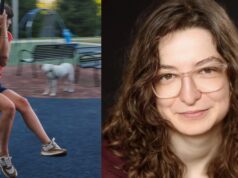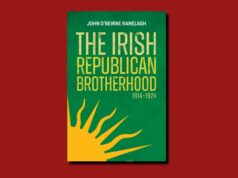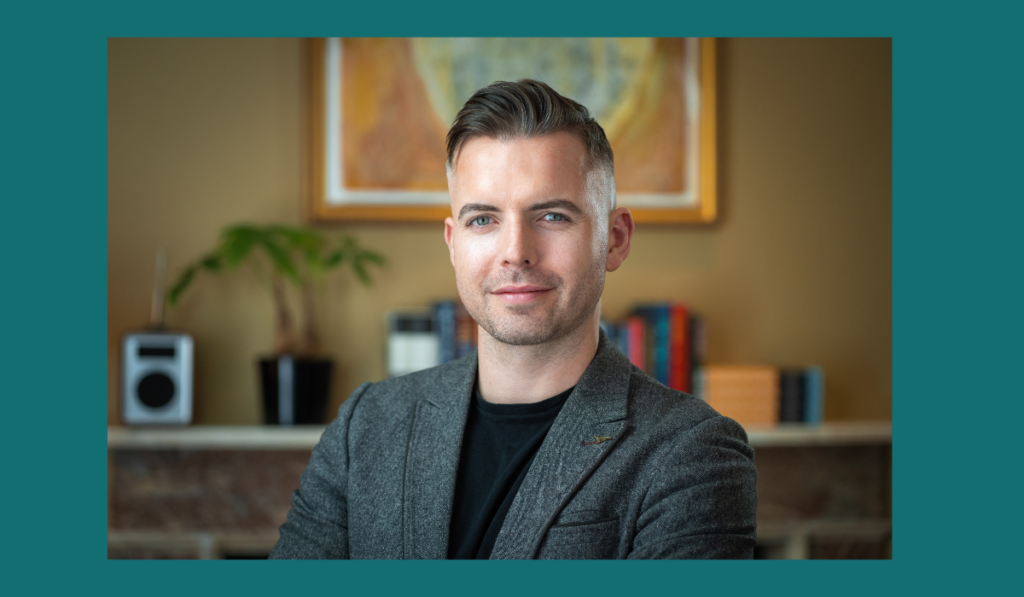
Ruth McKee talks to Jamie O’Connell, author of Diving for Pearls (Doubleday)
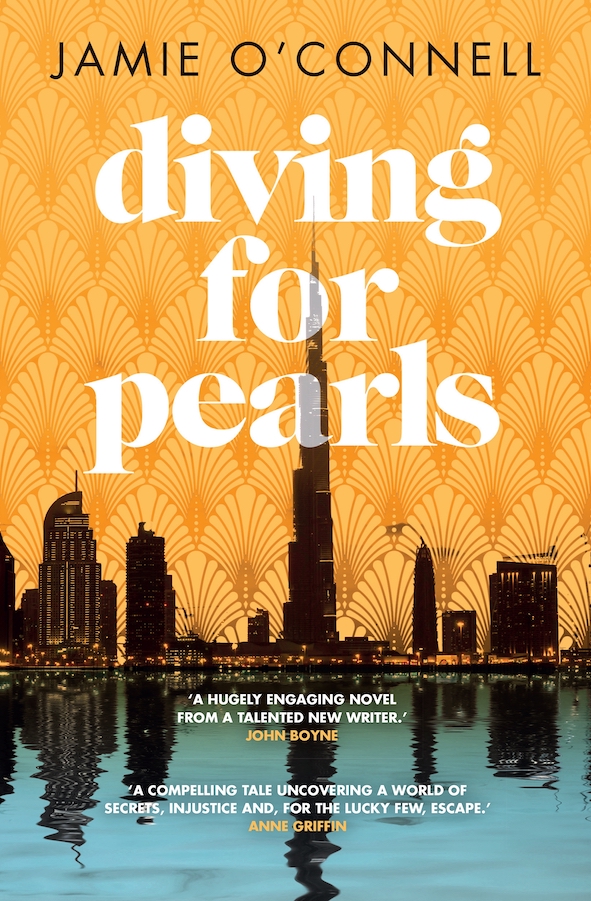
Jamie O’Connell‘s debut novel, Diving for Pearls is a story which moves smoothly from Dublin and Dubai, often tied to both and has been widely praised for its ambition and depth. He is founder of Blackwater Writing, where he is keen to help writers find their feet on the road to publication. Here he talks about imagination, editing, and having not just an eye—but an ear for a sentence.
You work as an editor—how does this inform your own craft?
During my MA in Creative Writing, my lecturers showed me the ‘rules’ of good prose, the craft that underpins great fiction. Before this training, I had lots of creative energy but it was unfocused and undisciplined. In the decade since then, these fixed writing ‘rules’ have fallen away as I edit. I do not consciously edit my work or others with a list of rules to hand. Instead, the sentence is like a line of music. I try to read it with heightened concentration, looking for off ‘notes’ (a word or phrase). Then I examine why it is not working.
My ethos for editing prose is taken from a quote by James Ryan: ‘Fiction is a work of the imagination for the imagination’.
The questions all writers must ask of every word and sentence is, ‘Does this engage the reader? Does it earn its place on the page?’.
Why Dubai as a setting for Diving for Pearls?
In 2010, I flew to Dubai for the first time. My flight crossed the sparkling azure seas of the Persian Gulf before looping around over the golden desert of the United Arab Emirates. The moment I caught a glimpse of this sparkling city of Dubai rising out of the sand, my imagination was caught. The metropolis of seventy-story skyscrapers left me with a wondrous feeling. I understood how Dorothy felt seeing The Emerald City for the first time.
How did you come to writing fiction, from your background in editorial?
My first love has always been writing. When I was eleven, I saw an interview with a famous Irish writer (I believe it was Maeve Binchy), which put the idea of writing in my head. I set about learning to type using Maevis Beacon, endlessly keying ‘ASDF’ while a cartoon chameleon was rewarded with flies for every letter I typed correctly. After learning these basics, I began to compose my first ‘novel’ in Microsoft Word. I have been writing ever since.
My love of editing and teaching prose has emerged out of my MA and MFA in Creative Writing. I was lucky to be taught by James Ryan, Éilís Ní Dhuibhne, Frank McGuinness and Paul Perry. I found their mentorship an immense act of generosity, which means I have a novel published today. It is extremely rewarding to now help other writers.
As an editor, what are the most frequent pot-holes that authors fall into?
Most authors don’t understand the ‘business’ of writing, which I think can lead to a lot of frustration. Publishing is where art meets business.
In the past, when I wasn’t hearing back from agents and editors, it felt so personal, when in fact it wasn’t. Everyone I have worked with in the publishing industry has been passionate about books and is sincere about what they do. That is why I am creating an online creative writing course this autumn The Advanced Creative Writing Course of which a quarter of the course will focus on perfecting submissions along with an introduction to the publishing industry.
What is your pet hate when editing a text?
The most frustrating part of editing can be when you correct an author’s work, only to edit their future work, and they are still making the same error. That is why I love to teach creative writing, as I feel I am empowering a writer to edit their work rather than just becoming their editorial crutch.
Tell me about the satisfactions of editing a novel, about your process.
Editing prose can feel like polishing a precious gem. You keep shaving away the excess that is blocking the beautiful clarity of the prose. Bit by bit, sometimes 10+ drafts later, you have a diamond that sparkles and gleams.
My process usually involves refining my prose, the word count dropping for several drafts. Then it reaches a point where I take a word out, only to reinsert it in the next. This usually means I am coming close to the end of the edits.
My second last draft usually involves comparing it to the very first one. Though the final draft can be perfectly polished, it can lose something of the life, the ‘blood’ of the initial draft. I may reinsert a couple of initial sentences.
My final draft is to read the story backward, reading the last sentence, then moving to the one before, and so on, right the way back. It picks up nearly all of the typos. Why? You read the sentences as separate entities, devoid of narrative. It’s getting sucked into the narrative of your story is what blinds you to seeing silly mistakes (commas, omitted words).
How important is plot to you?
For me, a compelling plot is derived from knowing your character. Once you know your protagonist, you need to figure out what is their deepest fear/wound — what will shake them to the core. Your story, the plot, will come from challenging that deep fear.
Which writers do you admire and possibly influence your own writing?
Kazuo Ishiguro, The Remains of the Day. Michael Cunningham, The Hours. Elizabeth Strout, My Name is Lucy Barton. Each of these authors has managed to create prose that has a resonance, a hum of unsaid emotional pain and longing, in every line. Each word is utilised for its rational and emotional capacity. They convey the ache that is in all of us. It is my great hope that my writing will one day achieve this sort of resonance.
Diving for Pearls is set in Dubai and reviewers have commented on how real and tangible the city is in the novel. What kind of research did you do to bring Dubai to life in this way?
In the early 2010s, I traveled there repeatedly, staying with friends for weeks at a time. It was the height of the recession; I was contemplating moving there, as there were job opportunities there that were not available in Ireland. During those visits, I spoke to maids, service workers and taxi drivers. Back in Ireland, I watched documentaries and researched articles about the conditions of workers. It was out of this, that Diving for Pearls was realised. Of course, I would be the first to say that this is fiction. I don’t speak for the people there. It is simply a mix of my experience of the city and its inhabitants combined with my imagination.
There is a big cast of characters in the novel and many merging narratives; did this pose a challenge for you?
In a way, this type of polyphonic novel that takes place over a short window of time (a week) drew nicely on my experience of writing short stories. However, when there was a problem with a plot point in Diving for Pearls, I tried not to force a solution. I would take a break for a day and trust my brain was figuring out the problem subconsciously. The answer always revealed itself (usually in a queue in a shop or just before I fell asleep!).
Are you working on a second book?
Yes. I have been working on a second book since February 2016 (I just checked my files!). I am hoping to have a draft later this year. It is different in that it follows one person over five decades of their life.
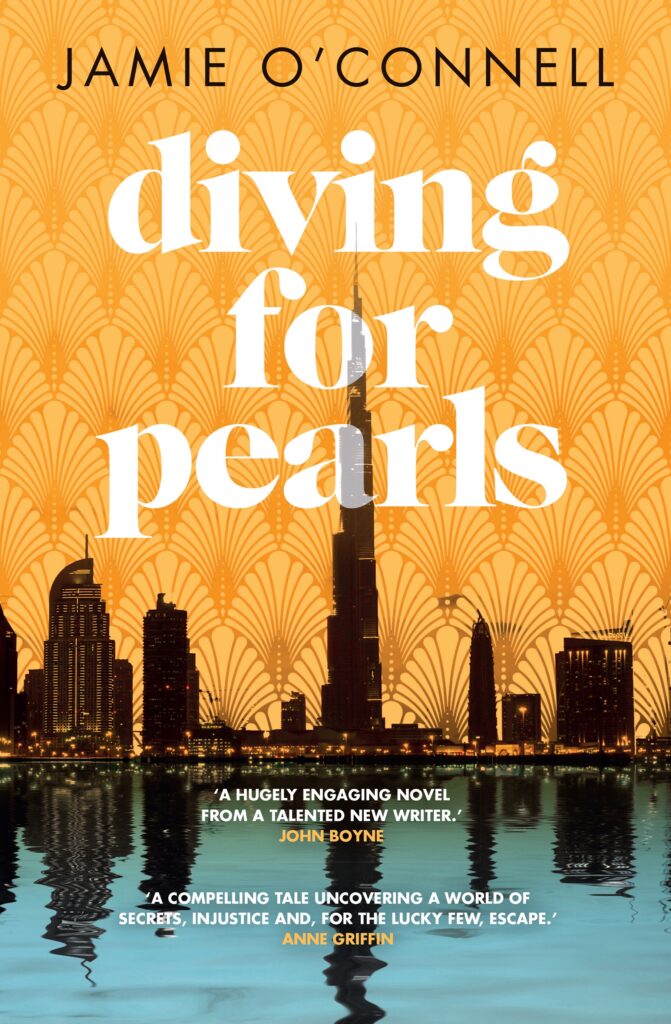
Diving for Pearls by Jamie O’Connell is published by Doubleday and is out now. Visit Blackwater Writing at blackwaterwriting.com







